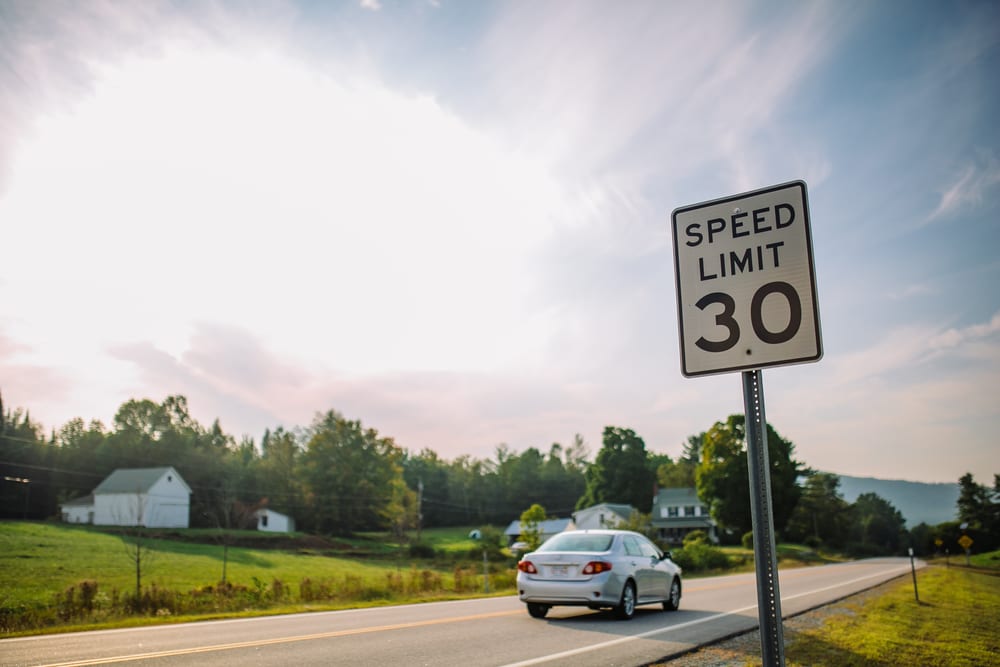

Following is an overview of the laws, limits, and fines as they relate to speeding traffic violations in the state of New Jersey.
Speed limits in New Jersey
65 mph: some freeways and interstates
55 mph: shorter length freeways and four-lane divided state highways
50 mph: county and municipal four-lane roads
40-50 mph: rural and county two-lane highways
35 mph: suburban residential and business districts
25 mph: non-suburban business or residential districts
15-35 mph: school zones
New Jersey code on reasonable and prudent speed
Maximum speed law:
According to section 39:4-98 of New Jersey vehicle code, “A person shall drive a vehicle at an appropriate reduced rate of speed when special hazards exist with respect to pedestrians or other traffic or by reason of weather or highway condition. Required reduced rates of speed also includes (1) approaching and crossing an intersection or railway grade crossing, (2) approaching and going around a curve, (3) approaching a hill crest and (4) traveling upon any narrow or winding roadway.”
Minimum speed law:
Section C.27:23-27 states, “No person shall drive a motor vehicle at such a slow speed as to impede or block the normal and reasonable movement of traffic.”
“When driving on the inside lane of a highway which has been designated for the use of traffic proceeding at the posted speed limit, a person shall drive at approximately the speed authorized and shall not decrease their speed so as to unnecessarily block, hinder or retard traffic.”
Due to variations in speedometer calibration, tire size, and margins of error in speed-detecting technology, it’s uncommon for an officer to pull a driver over for going less than five miles above the speed limit. However, technically any amount over can be considered a speed violation so best practices are to stay within the limit.
New Jersey has a mix of absolute and prima facie speed limit laws. This means in some cases, a driver may be able to argue that they were driving safely even if exceeding the posted limit. Or, a driver may choose to go to court and claim their innocence based upon one of the following:
The driver may oppose the determination of speed. In order to claim this defense a driver must know how his or her speed was determined and then learn how to disprove its accuracy.
A driver may claim that an emergency situation caused the driver to break the speed limit in order to prevent injury or damage to themselves or others.
The driver may claim a case of mistaken identity. If a police officer clocks a driver speeding and subsequently has to find them again in traffic, it’s possible that they could have made a mistake and pulled the wrong car over.
Penalty for exceeding the speed limit in New Jersey
First-time violators may:
Be fined between $50 and $200
Be sentenced to up to 15 days of jail time
Have their license suspended for up to between 30 and 180 days
Penalty for reckless driving in New Jersey
There’s no set speed at which violating the speed limit is considered reckless driving. That determination depends upon the circumstances of the violation.
First-time violators may:
Be fined between $50 and $200
Be sentenced to up to 60 days of jail time
Have their license suspended for up to between 30 and 180 days
Violators may also be required to complete a driver improvement course at a cost of $100.



